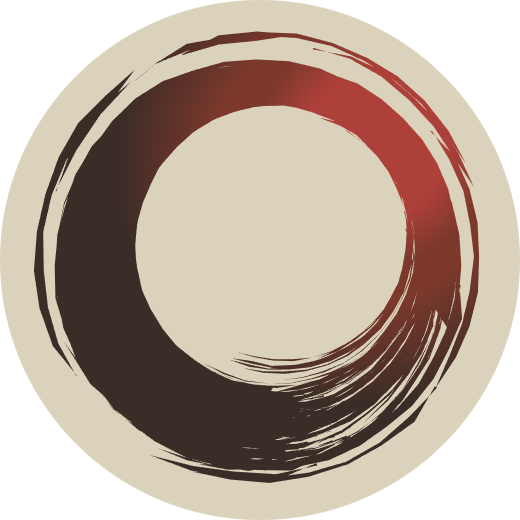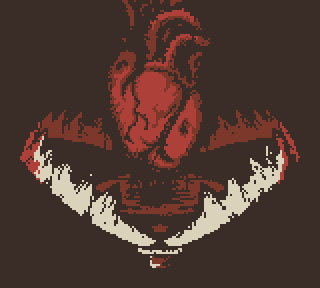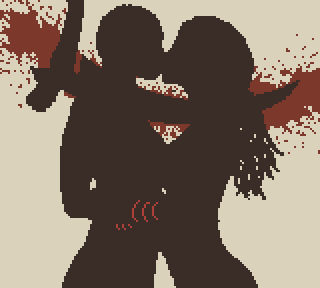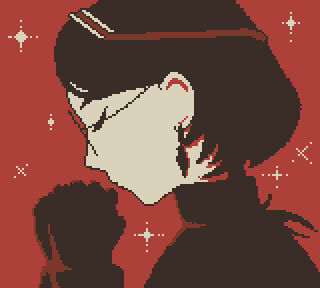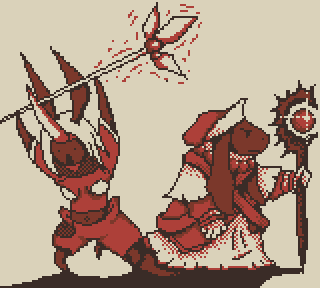Game Thoughts: Disco Elysium
After another back injury I found myself bedridden once again. I decided it
was time to finally get through Disco Elysium.
It's a game I've struggled to play for a while now. One that felt like it
was very much catering to everything I could want in a game, but frustrated
me at every attempt to play.
- Read the rest -
Book Thoughts: Someone you can Build a Nest In
I was looking for my next book after reading Chain-Gang All-Stars and saw a
random post on Mastodon about a novel called
Someone You Can Build a Nest In, which pitched itself as a
horror fantasy romance novel. The rest of my to-read list looked a bit
daunting so I dove in.
It was a fun short read. The protagonist is a shape-shifting monster who
falls for a human, and the rest of the story surrounds the resolution of
their differences (and the fact that the protagonist's new girlfriend's
family are monster hunters).
- Read the rest -
Game Thoughts: Abandoned 07-2024
While I've been trying to finish all the games I start, sometimes I
just don't have the energy or a particular game just doesn't hit right and I
put it down early. As a result I don't get around to writing about them,
which is a shame because I frequently refer to my own blogposts as a
refresher on what I did or didn't like about a given game or book.
So, for future me's reference, here's a handful of recent games I didn't
quite make it through:
(Drilldozer, Pokemon Unbound, Castlevania: Aria of Sorrow, A Space for the
Unbound, Cocoon)
- Read the rest -
Book Thoughts: Chain-Gang All-Stars
A friend of mine recently recommended
Chain-Gang All-Stars and I thought it was a really cheesy
title for a book, but gave it a shot anyways.
After finishing the audiobook version of the novel, I'd just like to say:
Holy shit.
- Read the rest -
Book Thoughts: I am a Strange Loop
I've wanted to read a bit of philosophy-of-the-mind for some time now, but
never really got around to it. After a discussion on consciousness with a
friend a bit back, I was recommended the works by Douglas Hofstadter. His
big-dick book "G.E.B" was a little intimidating, but the title of his more
recent work "I Am a Strange Loop" resonated with me (my own
online identity being tied to my loop-like spiral logo), and I've just
finished the audio version!
Firstly, a bit of praise: I'm a philosophy noob, and the author's heavy use
of allegory and analogy made digesting the book's core ideas approachable
and entertaining. I've managed to grind my attention span into dust and was
concerned the general dryness of philosophy texts would have me reaching for
other things to read -- but while it wasn't a particularly
gripping read, it absolutely held my attention the whole way
through.
- Read the rest -
Game Thoughts: The Forgotten City
I've just finished playing The Forgotten City; a
first-person mystery game I bought after perusing a random forum thread.
The game's in the same vein as something like The Outer Wilds in that
there's a looping mechanism that has you replaying a short segment of time
over and over as you eke out secrets.
Where The Outer Wilds has you flying through space alone, The Forgotten City
is a much more social take on the concept, and has you spending most of your
time in conversations with ancient Romans.
It was honestly great! There's a couple places (especially at the start)
where the dialogue was painfully awkward, and the character models sometimes
take you for an uncomfortable trip to uncanny valley, but those are minor
nitpicks when stacked up to the fun I had getting to know the characters and
figuring out what was going on.
At 6-ish hours to get the "real" ending, it's not a particularly long game,
but as of late I've definitely taken a liking to games I can beat in 1-2
weekend evenings.
Thoughts: Heaven is a Hostel in Chongqing
In 2018 I traveled to China to meet my partner's parents for the first time.
I was nervous; China gets a pretty bad rap and has several travel advisories
tied to it. I was also nervous to meet my future in-laws, but that was just
the anxiety-cherry on top.
We had time to do some additional traveling, so we picked some destinations
of interest that aligned with our travel plans: We'd enter via Hong Kong and
leave via Shanghai. We had to go to Harbin for the parental meeting, but we
had a little bit of time in the middle to add an extra destination. I voted
for Chongqing.
I had only recently learned of the existence of the city after eating
Chongqing Xiaomian (literally "Chongqing small noodle") which is a very
spicy and very numbing regional noodle dish. A little bit of digging
revealed that Chongqing wasn't just some small city that served spicy
noodles, but a monstrous tourist destination in china with a population of
30 million. Also, it's the birthplace of hotpot. Hell yes we were going to
Chongqing.
Warning: several large photos after the break.
- Read the rest -
Game Thoughts: 1000XResist
I've just hit the 1000XResist credit sequence roughly one
week after going into the game completely blind, having knee-jerk purchased
it after 10 seconds of game trailer.
I regret nothing - the game was fantastic. I spent most of the week
horizontal with a back injury, and couldn't have asked for a more engaging
distraction as I healed.
This title won't be for everyone. It's a very linear visual-novel-esq game
consisting almost exclusively of talking to NPCs and listening to monologues
in small exploreable areas. You mostly watch the story unfold.
But what a story!
This is games as art. This is a story that explores a lot of concepts via
its bizarre post-apocalyptic setting. Humanity's been wiped out by an
alien-borne virus that causes people to cry themselves to death. Only you
and your clone sisters remain, dutifully serving the ALLMOTHER.
Warning: Massive spoilers after the jump.
- Read the rest -
Book Thoughts: Snow Crash
A couple days ago I finished the audiobook version of
Snow Crash by Neil Stephenson.
I didn't know what to expect going in (having never read anything
Stephenson) but I honestly wasn't super into the package as a whole, despite
all the good stuff packed into it.
- Read the rest -
Game Thoughts: Final Fantasy Tactics A2
About a month ago I booted up Final Fantasy Tactics A2 on a
whim, and quickly became helplessly addicted to the game. I look now at my
completed save file which claims I sank 111 hours of my life into this game
-- this is untrue as I played the majority of the game on 2x speed, but I'm
still shocked at how quickly those hours passed.
I often go into games seeking story or novelty. I like a game with
world-building, or something that tells me a story. Character development,
surprises, mystery.
This has none of that. In FFTA2 The characters are flat, the driving
storyline amounts to "go explore and have fun, maybe that will get you
home", and outside of some interesting or funny quest lines there's not much
of note going on in Ivalice.
Everything else, however, hit all the right buttons so hard.
- Read the rest -
